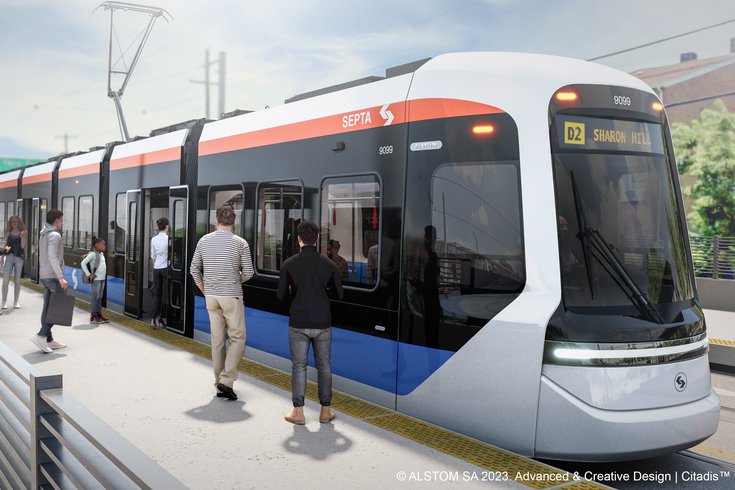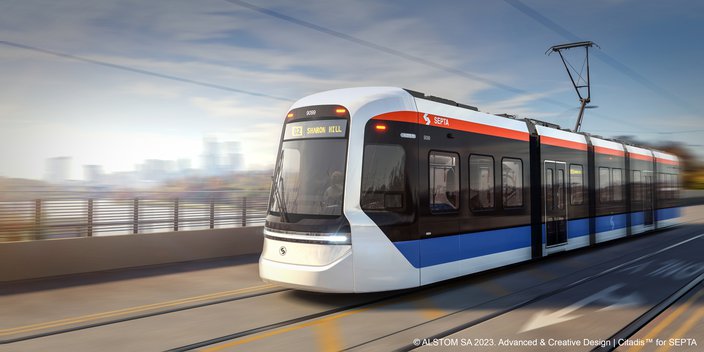
February 24, 2023
 Provided Image/Alstom Advance and Creative Design
Provided Image/Alstom Advance and Creative Design
SEPTA's new trolley cars, depicted in the rendering above, will be feature lower floors and wider pathways than its current fleet, which has been in service since the early 1980s.
SEPTA is moving forward with a project to replace its trolley cars, which have been in use since the early 1980s and are not wheelchair accessible.
The SEPTA Board revealed renderings of new trolley cars that will provide more space for passengers and have designated areas for riders with disabilities and those bringing strollers or bicycles. The new cars will have audio and visual messaging systems that announce upcoming stops and service changes.
Alstom Transportation will build 130 trolley cars that will include 44 seats and have space for up to 120 passengers. The SEPTA Board approved the $714 million order Thursday. The contract includes an option to purchase 30 more cars.
The first cars are expected in 2027, with entire fleet in service by 2030.
The new trolley cars will be longer than those currently used by SEPTA. They will have lower floors, ramps and wider pathways. They also will meet regulations under the American With Disabilities Act.
"SEPTA is committed to ensuring our trolleys meet the needs of all riders – people with disabilities, seniors, families with small children, new users, and anyone who needs a little more help to get where they are going," CEO Leslie S. Richards said.
SEPTA has ordered 130 new trolley cars to be built by Alstom Transportation. The first are expected to be in service in 2027; the entire fleet will be completed by 2030.
The new trolleys are part of SEPTA's broader plan to improve the infrastructure of the public transit system. SEPTA also plans to build new on-street trolley stations and rehabbing its underground stations to serve the new trolley cars. The upgraded stations will include more comfortable waiting areas and elevators at underground stations.
Complete SEPTA trolley modernization is estimated to cost $1.8 billion.
"SEPTA is still seeking over $800 million in competitive grants and state and local funding to make all the improvements necessary for seamless boarding," Richards said. "We are doing everything we can to move this project forward, but we need to secure new options for funding to leverage the once-in-a-generation infusion of federal dollars."
Philadelphia has the largest trolley system in the country. Its eight lines cover 68 miles that connect portions of West Philly, Southwest Philly, North Philly and Delaware County.
 Provide Image/ALSTOM ADVANCE AND CREATIVE DESIGN
Provide Image/ALSTOM ADVANCE AND CREATIVE DESIGN